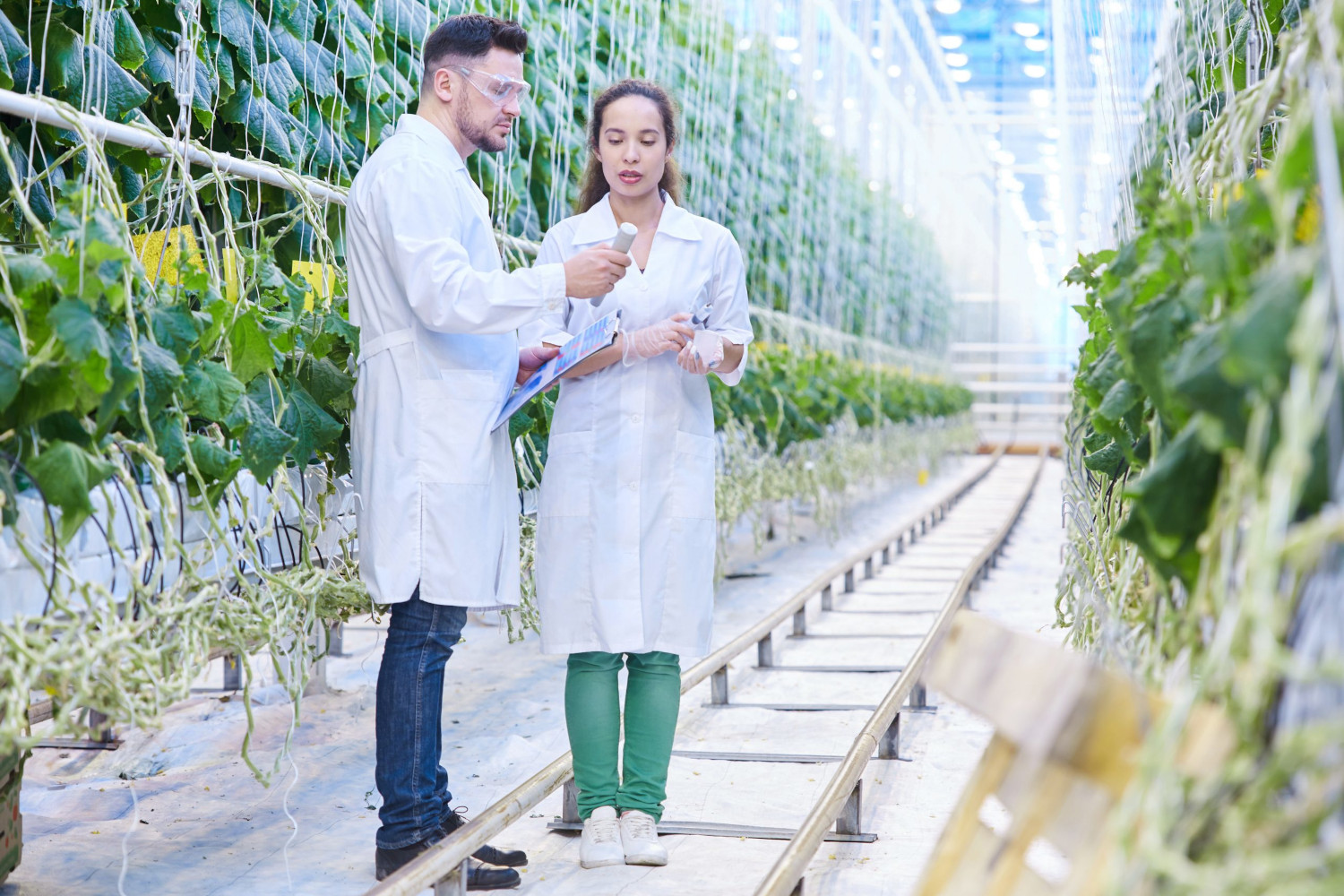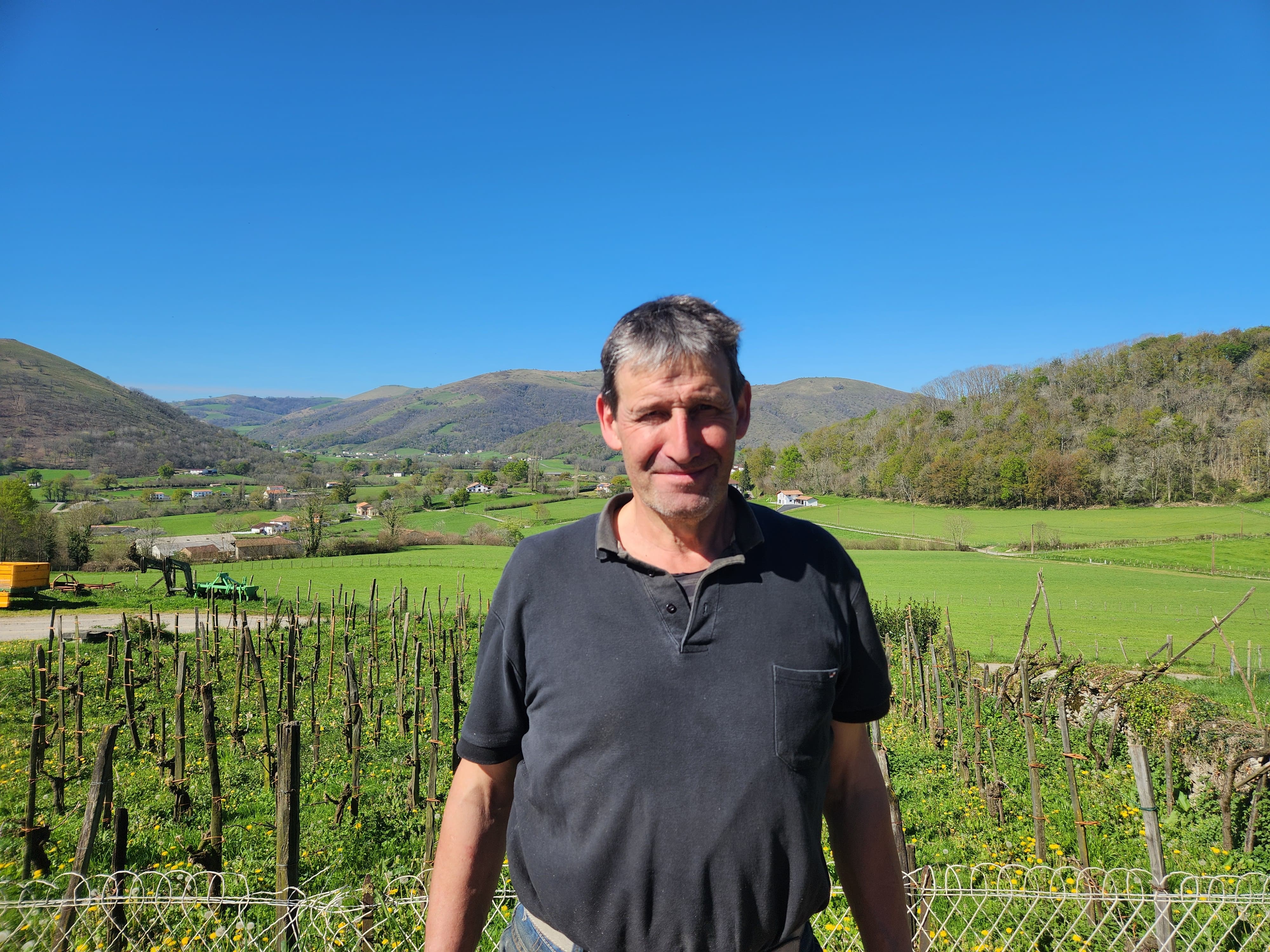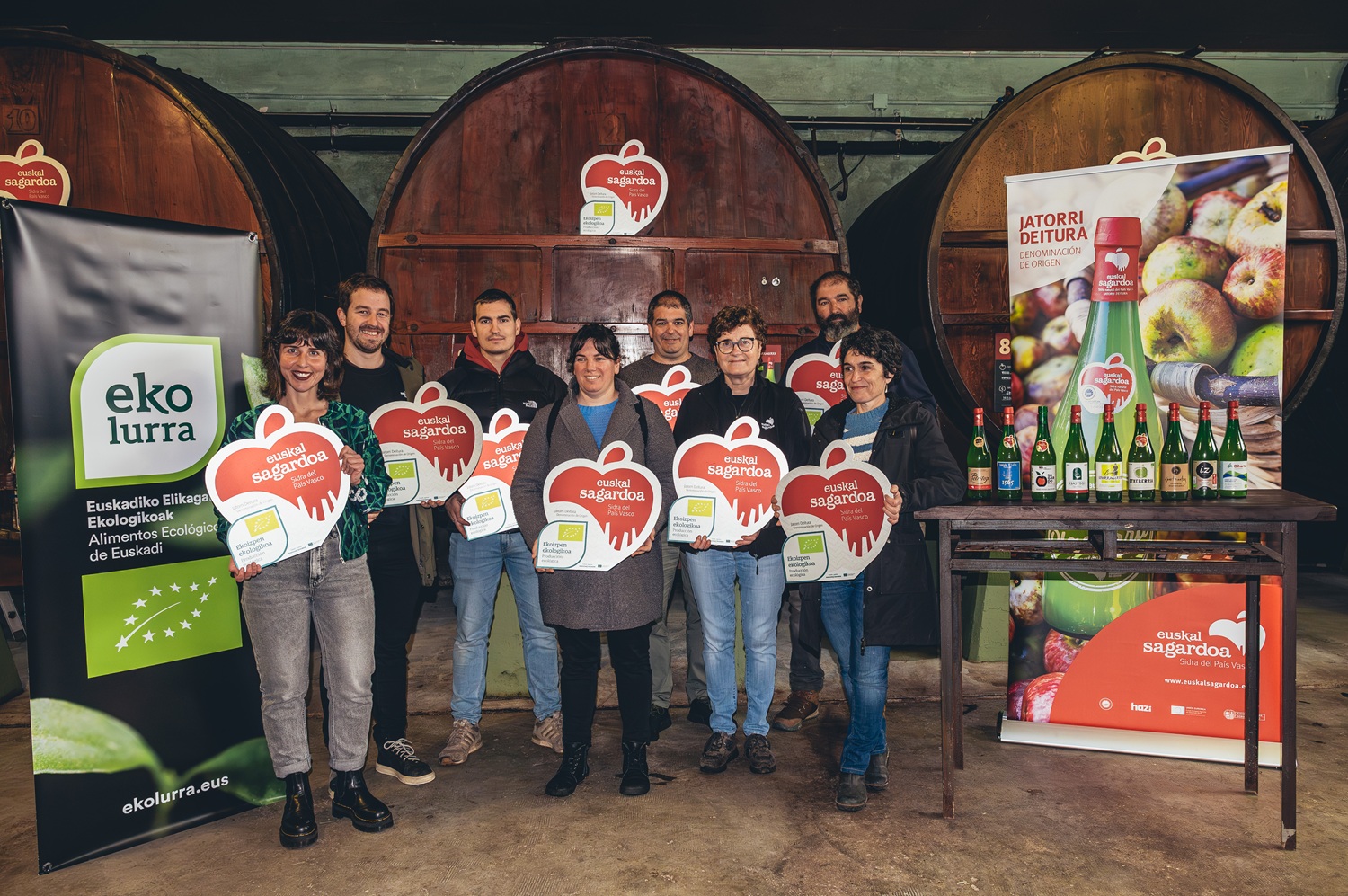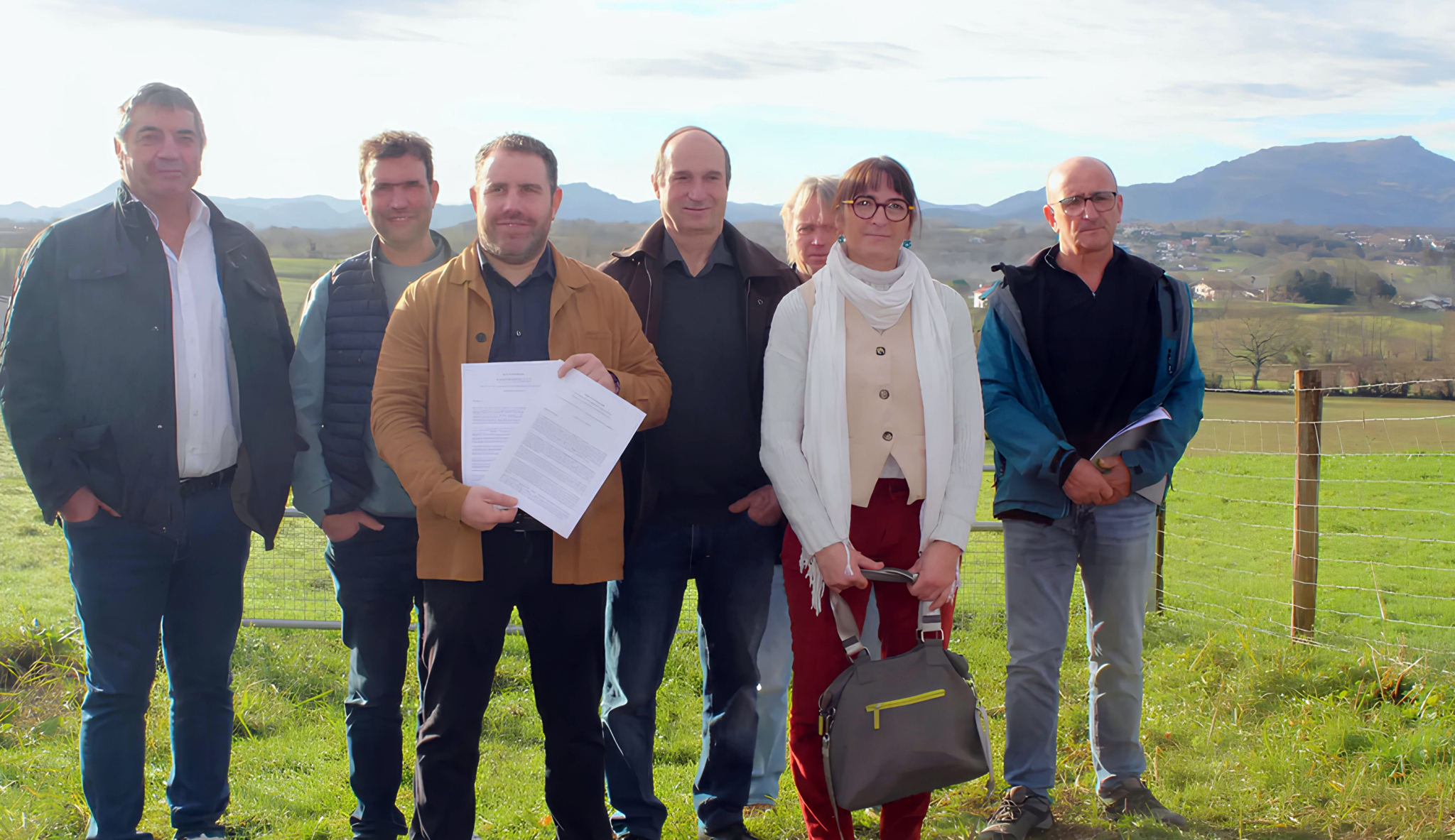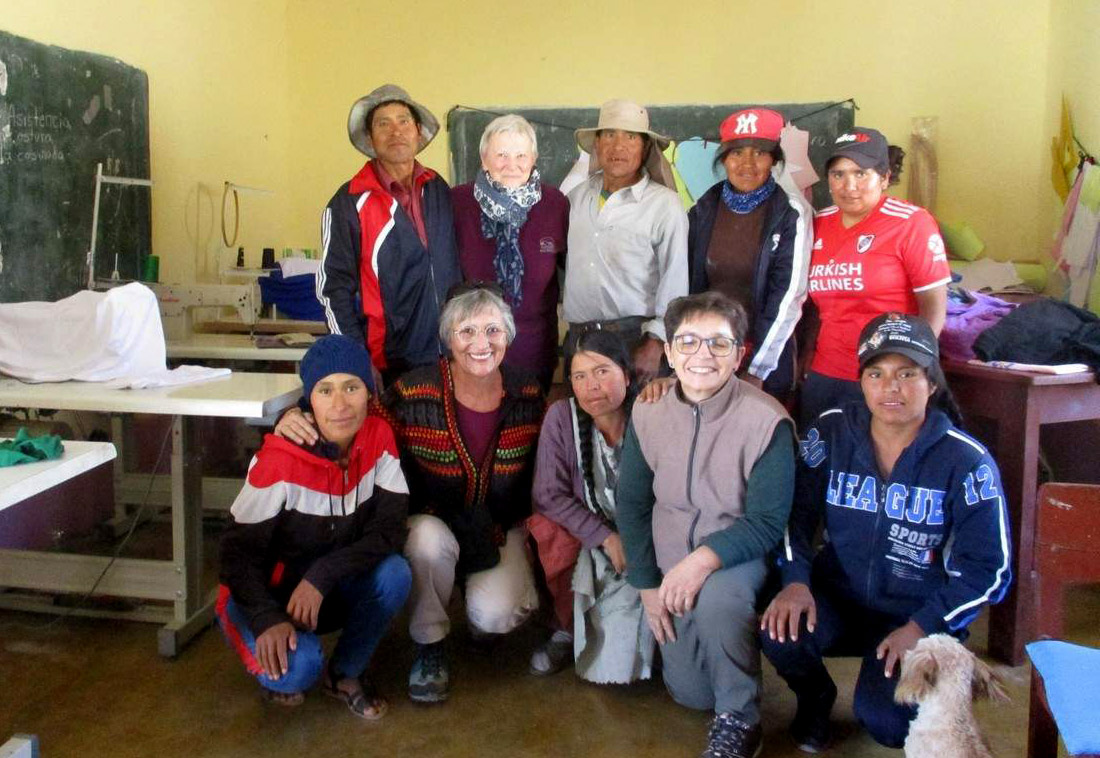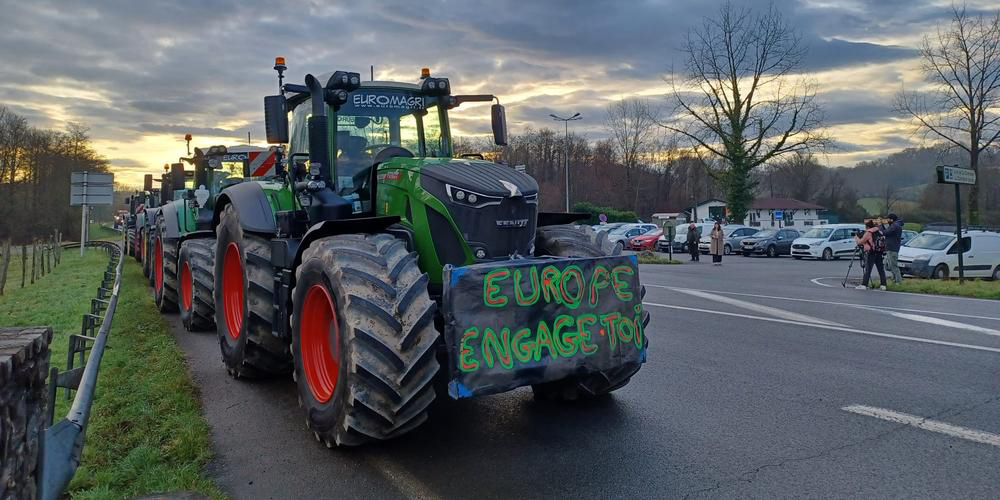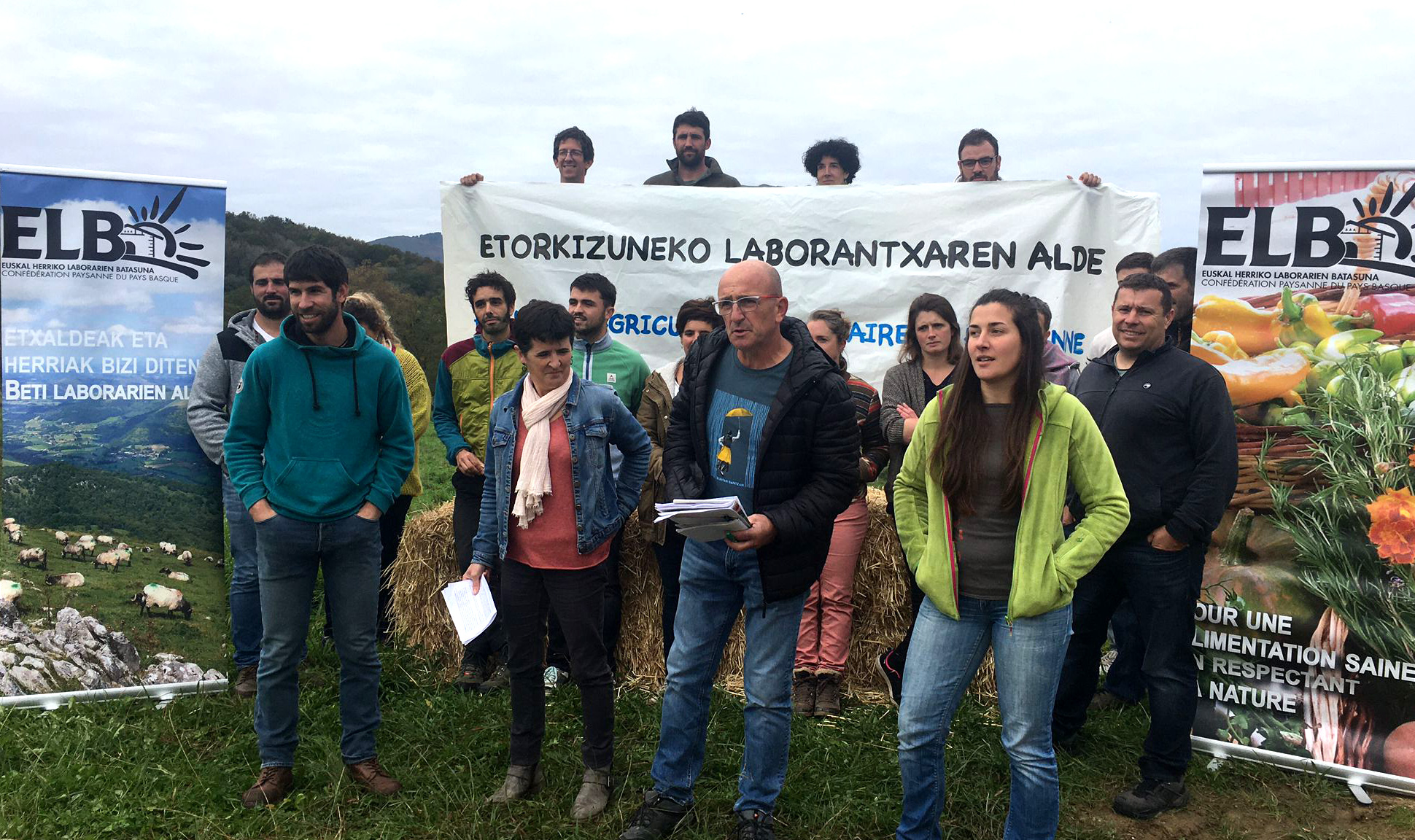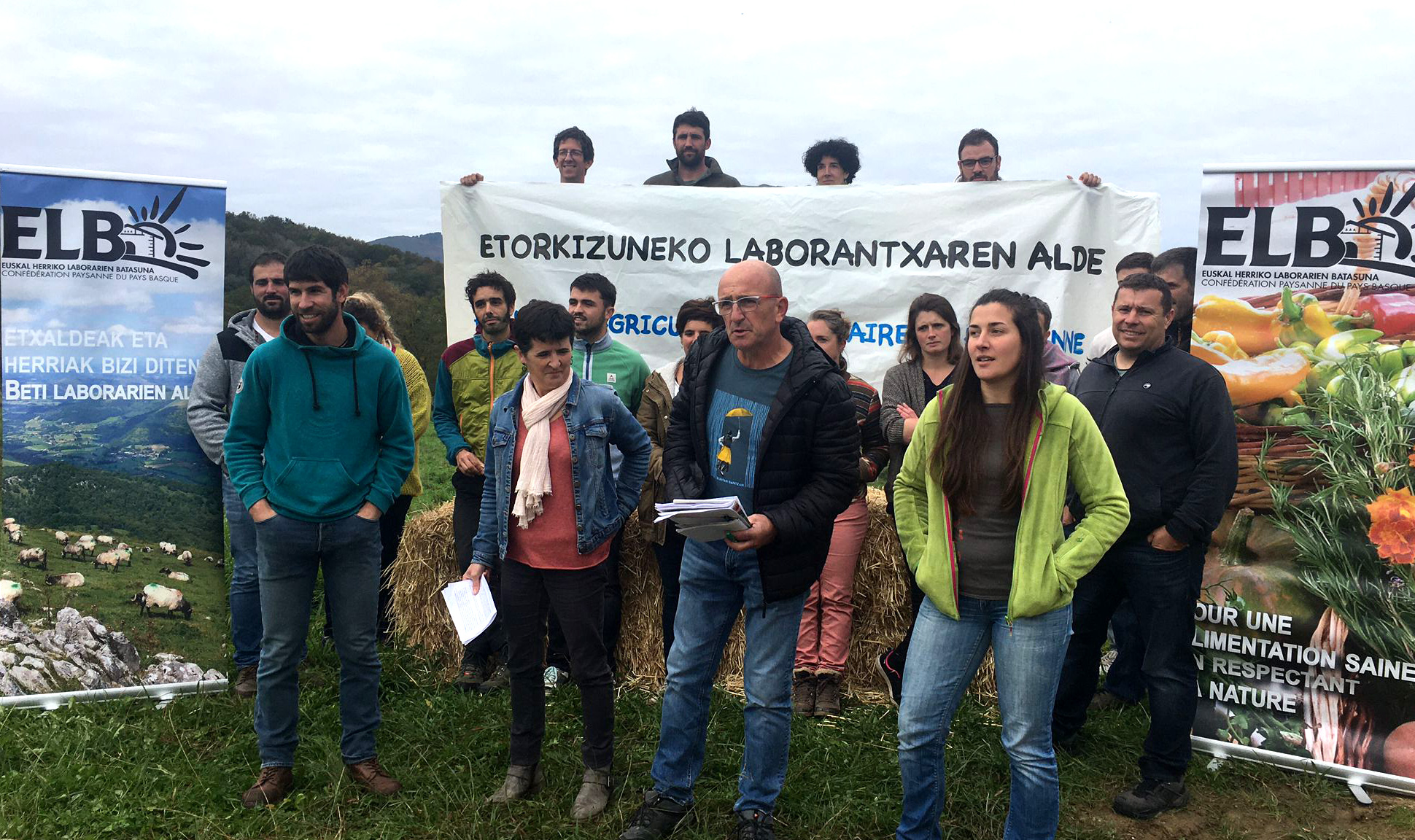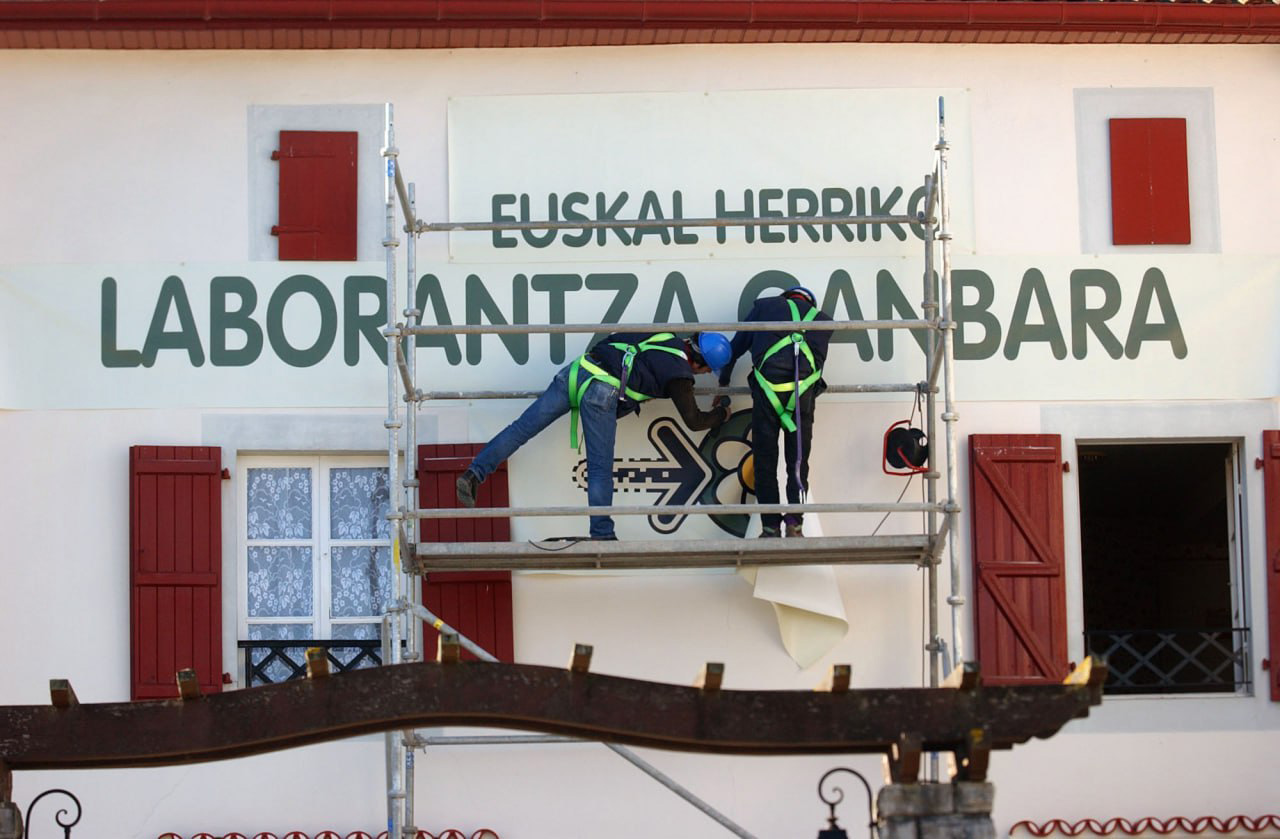Always in favour of farmers
- Beñat Molimos is the list head of 12 men and 8 women for the January 2019 trade union ELB trade union trade union. It presents us with the main demands of the list and more specifically the challenge of the public institution of Laboreo.

In short, can you present us with the Basque Farmers' Union?
Since 1982, the ELB trade union has put the farmer on the front line through mobilisation and solidarity as it is at the starting point of the production and food chain. Linked to trade unionism since 2005, the OECD created the development structure of Euskal Herriko Laborantza Ganbara, with the aim of promoting a popular and sustainable cultivation.
Why and how does the OECD hold elected positions in the 2019 trade union elections?
Agricultural elections are held every six years at the departmental level.
On this occasion, the ELB has decided to present a list of Ipar Euskal Herria and in the Biarno part, another 20 farmers from Confédération Paysanne submit a second list.
This choice has been driven by the creation of the Single Community of Iparralde, aware that it has taken over agriculture.
Therefore, the choice has been very normal for us, knowing that the responsibilities of the department’s agriculture chamber become increasingly weak when New Aquitaine acquires them.
The ELB is presented in these elections with four main axes:
- Defending and supporting farmers in everyday life, individually or collectively.
- Ensure life and habitability in all farms and hold hands for it in the seas and collective tools we have created (AOP, Herriko,…).
- Make proposals on the new CAP including employment and local specificities (small farms, slopes,…)
- Creation of a public farming organisation for its implementation in the field of agriculture and internal food of the Colegio Urbano.
We have called our list “Always for farmers”, as that has been the work that the ELB has done for 35 years. The list consists of 12 men and 8 women.
Can you give us concrete expression to this demand for the public agricultural structure?
The Single Commonwealth of Iparralde, established in 2017, has decided to take responsibility for agriculture within economic competition. Its first step has been the establishment of a committee of culture, composed of elected and elected representatives.
For our part, ELB, EHLG, Arrapitz, decided to propose in this new table a public structure of agriculture and food in the Basque Country. We wanted an innovative composition of the structure with three shares:
- Institutional representation: stadiums, collectivities (New Aquitaine, Department, Urban Community,…), cultivation structures (EHLG, branch of the Basque Country of the Department’s growing chamber).
- Professional representation: farmers’ unions, development structures, collective dismantling, training centres, etc.
- Representation of society (Development Council, representatives of the Consumer and Environment Department…).
The structure should be a public policy on agriculture and food. ELB and EHLG recently presented a project in this regard publicly, which can be considered an orientation. The President of the Basque Centre, Jean-René Etchegaray, has put an official question to the State. Now the ball is on the side of the state and the elect of the Basque Country.
Taking this situation into account, what are the changes that can be seen in the horizon 2019?
The image of agriculture in the continental Basque Country remains positive, although it may change soon. 80% of farms are in poor quality in a short or long circuit, many young people are also planted, we have to maintain that dynamic as much as possible. Targeting must be a sustainable and popular crop. We still have a great deal of work to do in the transmission of uneventful farms, in the protection of farmland and in the improvement of the unwavering enclosure of farmhouses and farms.
With this proposal for a public structure for cultivation, we want to make it clear that the issue of agriculture is the responsibility of all, and that the participation of all and all is necessary if a fixed solidarity approach is taken.
This interview was posted by Enbata and we brought it to ARGIA thanks to the CC-by-sa license.
Euskal Herriko Laborantza Ganberak hogei urte bete ditu. 2005ean sorturik, bataila anitzetatik pasa da Ainiza-Monjoloseko erakundea. Epaiketak, sustengu kanpainak edota Lurramaren sortzea, gorabehera ainitz izan ditu hogei urtez.
Txotx denboraldian eredu ekologikoan ekoiztutako Euskal Sagardoaren eskaintza izango da hainbat sagardotegitan, eta hura bistaratzeko, Jatorri Deiturak eta ENEEK-Ekolurrak kupeletan paratzeko euskarria aurkeztu dute.
Lurraren alde borrokan dabilen orok begi onez hartu du Frantziako Legebiltzarrak laborantza lurren babesteko lege-proposamenaren alde bozkatu izana. Peio Dufau diputatu abertzaleak aurkezturiko testua da, eta politikoa eta sentimentala juntaturik, hemizikloan Arbonako okupazioa,... [+]
203 diputatu alde eta hiru aurka agertu dira martxoaren 11 gauean egin bozketan. Higiezinen agentziak haserre agertu dira, eta bi salaketa aurkeztu ditu FAIN Frantziako Higiezinen Federazio Nazionalak Europako Batzordean. Bata, lege-proposamenari esker botere gehiago jasoko... [+]
Laborantzaren Orientazio Legea pasa den astean ofizialki onartu du Frantziako Parlamentuak. Ostegunean Senatutik pasa da azken aldikoz. Iazko laborarien mobilizazioen ondotik, aldarrikapenei erantzuteko xedea du lege horrek. Aldiz, ingurumenaren aldeko elkarteek azkarki salatzen... [+]
Zubiak eraiki Xiberoa eta Boliviaren artean. Badu jadanik 16 urte Boliviaren aldeko elkartea sortu zela Xiberoan. Azken urteetan, La Paz hiriko El Alto auzoko eskola bat, emazteen etxe baten sortzea, dendarien dinamikak edota tokiko irrati bat sustengatu dituzte.
Datorren astean Departamenduko Laborantza Ganbarako hauteskundeak ospatuko dira Ipar Euskal Herrian. Frantzia mailako FDSEA eta CR sindikatuez gain, ELB Euskal Herriko Laborarien Batasuna aurkezten da, "euskal laborarien defentsa" bermatzeko.
Euskal Herriko Laborantza Ganbera elkartearen hogei urteak ospatu zituzten asteburuan Ainhize-Monjolosen. 2005eko urtarrilaren 15 hartan sortu zuten Lapurdi, Baxenabarre eta Zuberoako laborantzaren garapena –hori bai, iraunkorra eta herrikoia izan nahi duena–... [+]









